The best lenses for Nikon D500 at an affordable prices.
The D500 is considered to be one of the best Nikon cameras as its speed reaches 10 fps. It’s the top choice for those who need to purchase a crop-sensor model for taking photos of sports events and animals.
Besides, it features the pro-level autofocus that can be found in the far more expensive full-frame cameras. Thanks to its solid build and ultra-fast speed, it’s a perfect option both for professional photographers and beginners. But to achieve a truly amazing result, you need to choose the best lens for Nikon D500.
Having tested all the best lenses for Nikon D500, I have compiled this list taking into account prices, functionality and image quality. In this article, you will find reviews of the best prime and zoom models on the market that are great for taking wide-angle and telephoto shots.
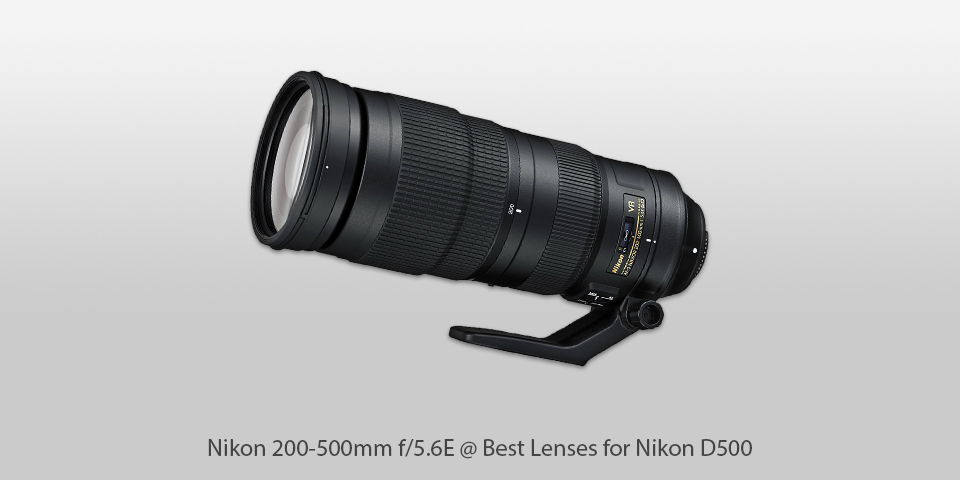
Mount: Nikon F | Diaphragm blades: 9, Rounded | Autofocus: Yes | Min focus distance: 2.2 m | Max magnification: 0.22 x | Filter thread: 95 mm | Dimensions (WxL): 108 x 267.5 mm | Weight: 2300 g
⊕ Small-sized
⊕ Telephoto zoom
⊕ Compatible with many cameras
⊕ Clear images with close-to-life colors
⊖ Prone to breaking
Regardless of your primary area of interest in photography, this telephoto lens with an f/5.6E aperture and VR image stabilization will produce amazing images without any sign of blur. With this 200-500mm wildlife lens for Nikon D500, you can easily capture photos of birds, animals, sports events, buildings and any faraway subjects.
It was created for those who need to take pictures of moving vehicles and work in low-light conditions. Its VR image stabilization system reduces camera-shake effects by up to 4.5 shutter speed stops.
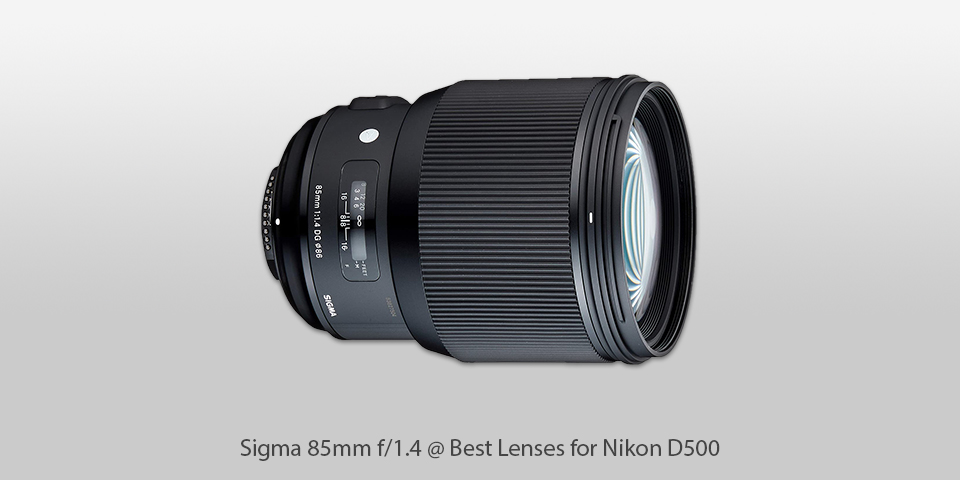
Mount: Nikon F | Diaphragm blades: 9, Rounded | Autofocus: Yes | Min focus distance: 0.85 m | Max magnification: 0.12 x | Filter thread: 86 mm | Dimensions (WxL): 94.7 x 126.2 mm | Weight: 1130 g
⊕ Built-in HSM
⊕ Compatible with different cameras
⊕ 2 SLD lens elements
⊕ Multi-layer coating
⊖ No IS
Those who are interested in portrait photography will appreciate the Sigma 85mm f/1.4 lens as it has impressive resolving power and reduces chromatic aberration. With this Nikon D500 portrait lens, you can focus on your subject perfectly and take a photo with the bokeh background.
A Hyper Sonic AF motor accounts for quick and precise focusing. You can also use a big focusing ring for manual focus override if you need to take a better quality image.
A rounded nine-blade aperture creates mesmerizing bokeh. The body of the lens is made of lightweight and durable composite material known for its thermal stability. The lens comes with a brass bayonet mount for connecting it to your camera.
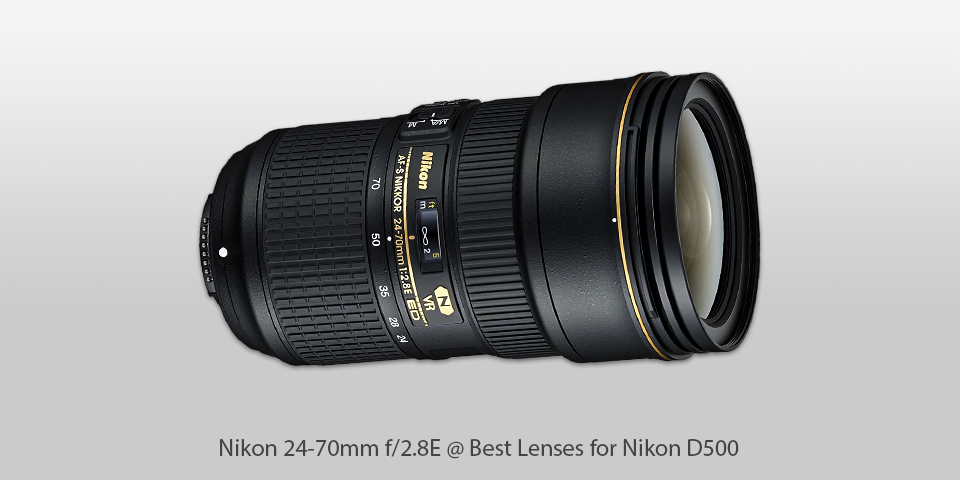
Mount: Nikon F | Diaphragm blades: 9, Rounded | Autofocus: Yes | Min focus distance: 0.38 m | Max magnification: 0.27 x | Filter thread: 82 mm | Dimensions (WxL): 88 x 154.5 mm | Weight: 1070 g
⊕ Exceptional image quality
⊕ Produces sharp images
⊕ Non-stick glass
⊕ Compatible with many models
⊖ Similar to the earlier version
⊖ Overpriced
If you compare this model to the earlier versions and other best lenses for Nikon D500, it can easily beat them when it comes to speed, sharpness, control, durability and VR image stabilization. Its overall performance is nothing short of stunning.
As for the image quality, a Silent Wave Motor AF system accounts for fast and noiseless focusing, which makes this lens a perfect option both for taking photos and capturing video footage. You can also set the focus manually by adjusting the focusing ring.
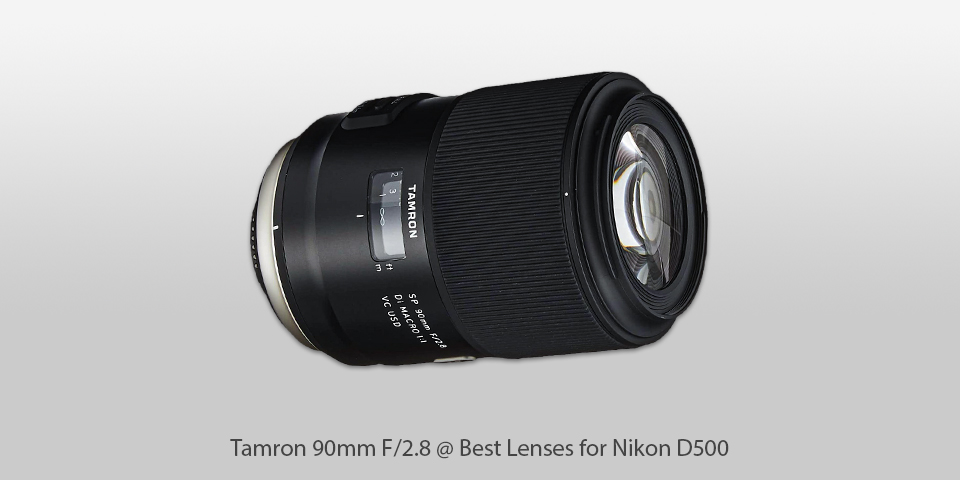
Mount: Nikon F | Diaphragm blades: 9, Rounded | Autofocus: Yes | Min focus distance: 0.3 m | Max magnification: 1 x | Filter thread: 62 mm | Dimensions (WxL): 79 x 122.9 mm | Weight: 600 g
⊕ Moisture-resistant
⊕ Dust-proof
⊕ No signs of flare and ghosting
⊕ Macro shooting
⊖ Autofocus might break down easily
This 90mm macro lens with an f/2.8 aperture comes with the XY-Shift compensation feature that accounts for improved IS regardless of a shooting distance. Thanks to its high AF speed, you can quickly capture the best moments of any event.
If you use a camera in a handheld mode, you will appreciate that this lens for Nikon D500 has the Vibration Compensation feature that accounts for improved image stabilization and reduces camera shake by up to 3.5 stops.
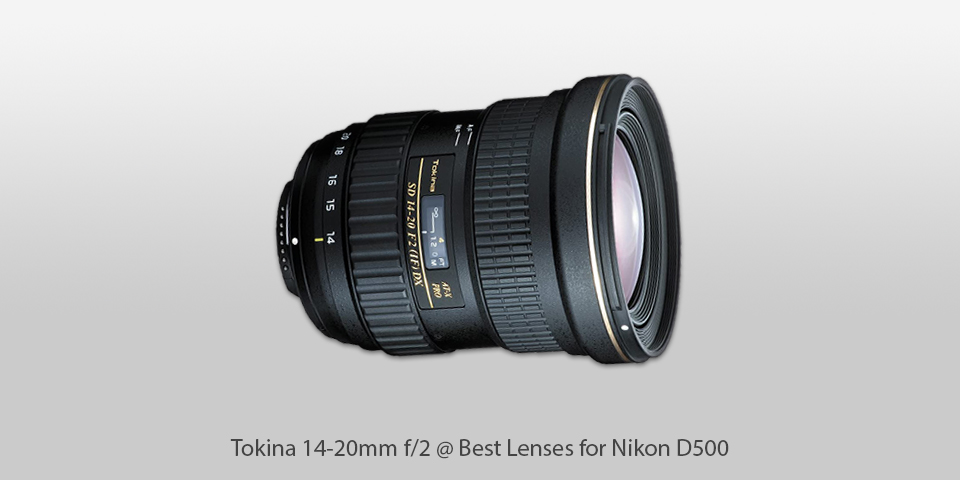
Mount: Nikon F | Diaphragm blades: 9 | Autofocus: Yes | Min focus distance: 0.28 m | Max magnification: 0.12 x | Filter thread: 82 mm | Dimensions (WxL): 89 x 106 mm | Weight: 725 g
⊕ Compatible with many cameras
⊕ Cheap
⊕ Anti-reflective coating
⊕ Enhanced contrast
⊖ A loose zoom ring
⊖ Subpar focus speed
If you have a DSLR camera from Nikon with a DX sensor and F mount, this wide angle lens for Nikon D500 released by Tokina will be a perfect option for you. With a 21-30mm equivalent focal length range and ultra-high speed, it produces bright images thanks to its constant f/2 max aperture.
It delivers steady performance across the range and can be used for taking photos in poor light conditions. 9 aperture blades produce a stunning bokeh effect.
| Image | Name | Features | |
|---|---|---|---|
 |
Nikon 200-500mm f/5.6E
Compact |
CHECK PRICE → | |
 |
Nikon 24-70mm f/2.8E
Image Quality |
CHECK PRICE → | |
 |
Sigma 85mm f/1.4
Art Lens |
CHECK PRICE → |
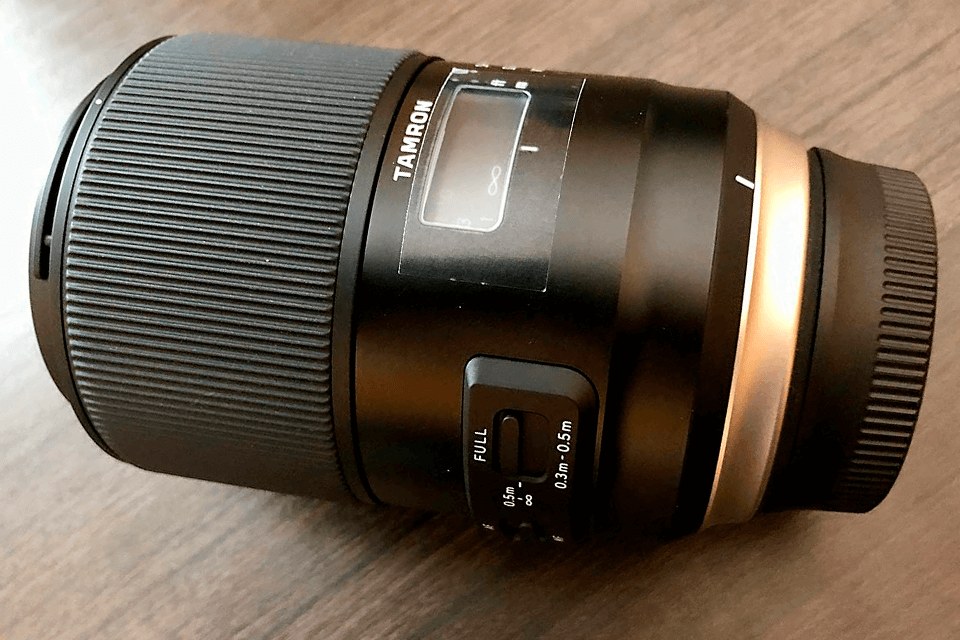
When photographers talk about the focal length, they refer to the distance from the lens’ center to the sensor. If it’s quite small, it allows you to take wide shots. As opposed to that, a long focal length indicates that a lens has better magnifying power.
Those who intend to take wide shots need to pick a lens with a focal length ranging from 14mm to 35mm.
Aperture indicates how much light enters your camera. It’s expressed as an f-number. If it’s small, it means that a lens has better light-gathering capabilities. For instance, an f/1.2 aperture is perfect if you are going to take photos in poor light conditions as it has a wide opening and collects more light.
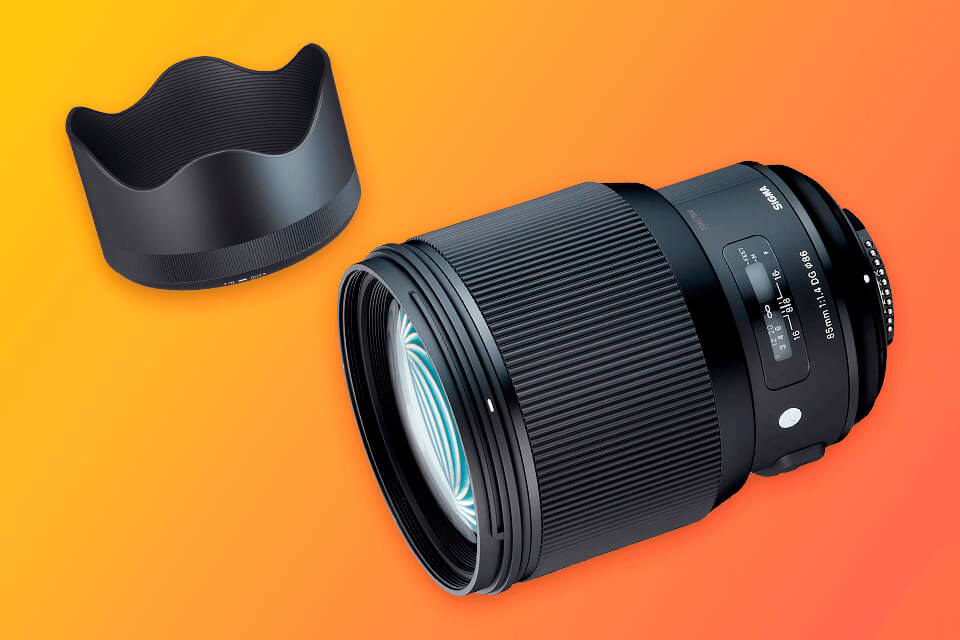
Photographers who take photos of birds and insects need to use a lens with a close focus distance. For some photos, it’s better to buy a dedicated macro lens. Telephoto lenses with a min focus distance of more than 5m can’t be used for taking photos of bugs and butterflies. Macro lenses allow you to focus quite close and take full-frame pictures of small insects. The only disadvantage is that they are very slow which makes them unsuitable for taking photos of animals.
FX refers to full-frame lenses and camera bodies. If your camera has an FX sensor, it means that it has a larger area for collecting light. It also has better sensitivity and produces images with lower noise. A DX lens has a smaller circle that has the same size as a DX sensor. If you need a camera with a larger image circle, pick a model with an FX-format sensor.
Take a look at the Nikon 135mm f/2 DC AF. This 135mm model with defocus control is considered to be one of the best lenses for Nikon D500.
If you are interested in general bird photography and want to go on a trip, a 400mm lens might suffice for taking nice photos. However, it’s better to find at least a 500mm lens that allows you to capture pictures more easily. Keep in mind that the image quality directly depends on a focal length.
If your zoom lens for Nikon D500 is marked with the letters “EF” and there is no letter “S” on it, you can use it will both full-frame and crop-frame sensor models. When it comes to Nikon cameras, “DX” indicates that a lens can be used only with crop-frame DSLRs. FX lenses can be used with full-frame and crop-frame cameras alike.

 Rating
Rating